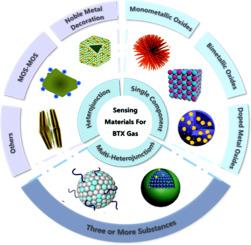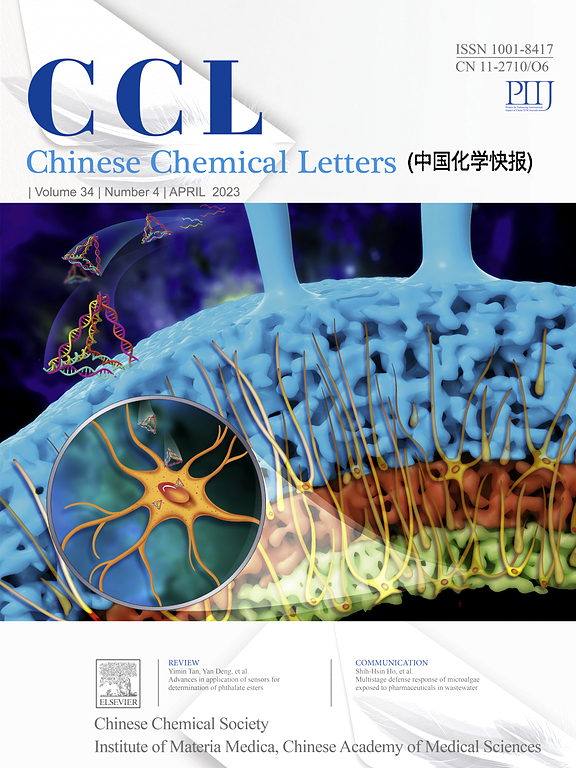Trace detection of benzene, toluene and xylene (BTX) by chemiresistive metal oxide-based gas sensors: Recent advances in heterojunction materials design
IF 9.4
1区 化学
Q1 CHEMISTRY, MULTIDISCIPLINARY
引用次数: 0
Abstract
As the chemical industry expands, the use of benzene, toluene, and xylene (collectively known as BTX) in industrial production has increased greatly. Meanwhile, the toxic nature and potential health hazards of BTX gases cannot be ignored due to low-concentration leaks underline the critical need for rapid and real-time monitoring of these gases. Chemiresistive metal oxide semiconductor (MOS)-based gas sensors, which are extensively used for gas detection in both industrial settings and everyday life, emerge as one of the optimal solutions for trace BTX detection. These sensors are highly valued for their high sensitivity and low detection limits. Nevertheless, the improvement of selectivity towards specific BTX gases to achieve efficient and precise detection still remains challenging. This review summarizes the chemiresistive MOS-based gas sensors designed for BTX detection, categorizing them based on the components of sensing materials-basically into three groups: single-component, single heterojunction, and multiple heterojunctions gas sensing materials. Further, the review proposes the future application prospects of chemiresistive MOS-based BTX gas sensors, with specific emphasis on their significance in promoting industrial safety and environmental monitoring.

利用基于化学电阻金属氧化物的气体传感器痕量检测苯、甲苯和二甲苯 (BTX):异质结材料设计的最新进展
随着化学工业的发展,苯、甲苯和二甲苯(统称为 BTX)在工业生产中的使用大大增加。同时,由于低浓度泄漏,BTX 气体的毒性和对健康的潜在危害不容忽视,因此亟需对这些气体进行快速、实时的监测。基于化学电阻金属氧化物半导体(MOS)的气体传感器被广泛用于工业环境和日常生活中的气体检测,是痕量 BTX 检测的最佳解决方案之一。这些传感器因灵敏度高、检测限低而备受推崇。然而,如何提高对特定 BTX 气体的选择性以实现高效、精确的检测仍然是一个挑战。本综述总结了为检测 BTX 而设计的基于化学电阻 MOS 的气体传感器,并根据传感材料的成分将其基本分为三类:单组分、单异质结和多异质结气体传感材料。此外,综述还提出了基于化学电阻 MOS 的 BTX 气体传感器的未来应用前景,并特别强调了其在促进工业安全和环境监测方面的意义。
本文章由计算机程序翻译,如有差异,请以英文原文为准。
求助全文
约1分钟内获得全文
求助全文
来源期刊

Chinese Chemical Letters
化学-化学综合
CiteScore
14.10
自引率
15.40%
发文量
8969
审稿时长
1.6 months
期刊介绍:
Chinese Chemical Letters (CCL) (ISSN 1001-8417) was founded in July 1990. The journal publishes preliminary accounts in the whole field of chemistry, including inorganic chemistry, organic chemistry, analytical chemistry, physical chemistry, polymer chemistry, applied chemistry, etc.Chinese Chemical Letters does not accept articles previously published or scheduled to be published. To verify originality, your article may be checked by the originality detection service CrossCheck.
 求助内容:
求助内容: 应助结果提醒方式:
应助结果提醒方式:


